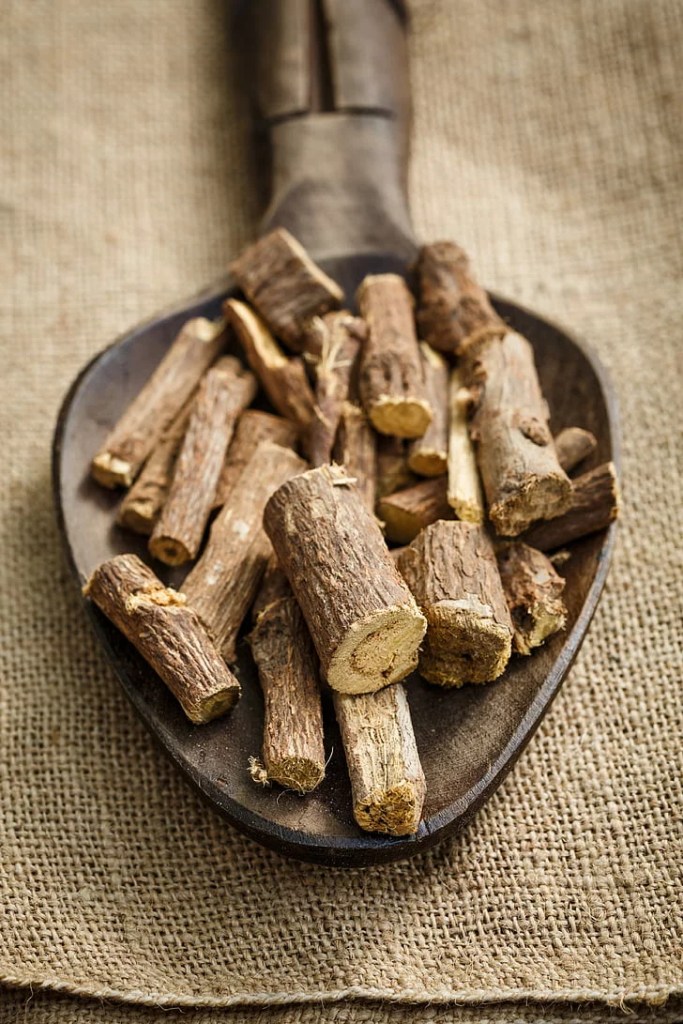Understanding Ashwagandha
Overview of Ashwagandha: Origins, Traditional Uses, and Its Rise in Modern Health Culture
Ashwagandha, also known as Withania somnifera, has roots deeply embedded in the rich soil of Ayurveda, the ancient Indian system of medicine. Revered for thousands of years, this adaptogenic herb has been a go-to remedy for a myriad of health concerns.
Contents
- Historical Significance: Used traditionally to enhance vitality, ashwagandha has been a key player in Ayurvedic medicine, addressing issues from stress to physical weakness.
- Cultural Importance: Beyond India, it has woven its way into various cultures, appreciated for its rejuvenating properties.
- Modern Adoption: In today’s health-conscious world, ashwagandha has gained immense popularity. It’s being embraced globally for its potential to improve overall wellness, leading to an increase in research and diverse product formulations. Learn more about this in our comprehensive guide on Ashwagandha.
Active Components of Ashwagandha: Withanolides and Their Effects on the Human Body

The magic of ashwagandha lies in its bioactive compounds, primarily withanolides. These naturally occurring steroids have been the focus of extensive scientific research due to their potential health benefits.
- Withanolides Explained: These compounds are believed to be responsible for the herb’s stress-reducing, neuroprotective, and anti-inflammatory properties.
- Impact on Health: Studies suggest that withanolides can help in regulating cortisol levels, enhancing brain function, and supporting overall vitality.
- Ongoing Research: The exploration of withanolides is a hot topic in modern pharmacology, as researchers seek to unlock their full potential. Discover more about their effects in our article on Vitamin Ashwagandha.
Ashwagandha in Modern Medicine: Current Research and Applications in Health and Wellness
As we bridge traditional knowledge and contemporary science, ashwagandha’s role in modern medicine becomes increasingly significant.
- Clinical Studies: Recent studies have focused on its adaptogenic properties, exploring its ability to help the body cope with stress and anxiety. For detailed insights, refer to our article on Ashwagandha for Anxiety.
- Therapeutic Applications: From enhancing mental clarity to boosting physical endurance, ashwagandha is being incorporated into various health supplements and lifestyle products. Explore the best options in Best Ashwagandha Brand.
- Safety and Efficacy: As its popularity grows, so does the scrutiny around its safety and effectiveness. We delve into these aspects, addressing concerns like Ashwagandha Side Effects and Is Ashwagandha Safe.
Ashwagandha with Alcohol – The Basics
Definition and Context: Clarifying What Combining Ashwagandha with Alcohol Means

Combining Ashwagandha and alcohol isn’t just about mixing a herb with a beverage. It’s a complex interplay of biochemistry and lifestyle choices that demands a nuanced understanding.
- Ashwagandha: A revered adaptogen known for its stress-relieving properties. For a deeper dive, check out our What is Ashwagandha Comprehensive Guide.
- Alcohol: A common social lubricant with varied effects on health and mood.
- The Blend: When these two are combined, the potential effects and interactions become a focal point of interest and concern.
- Contextualizing the Combination: It’s not just about asking, “Can you?” but understanding the “Should you?” and “Why?”. This involves delving into the physiological impacts of both substances.
Popularity and Trends: Analyzing the Growing Trend of Combining These Substances
The trend of mixing ashwagandha with alcohol is a reflection of our society’s evolving relationship with health and wellness.
- Rising Popularity: The fusion of traditional herbal remedies with modern lifestyle choices reflects a growing interest in holistic wellness.
- Consumer Behavior: People are increasingly curious about natural supplements and their interactions with everyday substances like alcohol.
- Health and Wellness Trends: The trend also highlights a broader shift towards self-care and preventative health measures. This includes the use of supplements like ashwagandha to potentially mitigate the stressors of modern life, even when consuming alcohol.
- The Role of Social Media and Marketing: Platforms like Instagram and health blogs have played a significant role in popularizing such combinations, often without the backing of scientific evidence. This trend underscores the importance of informed decision-making and responsible consumption.
Ashwagandha and Alcohol Interactions

Biological Interactions: How Ashwagandha and Alcohol May Interact in the Body
The interaction between Ashwagandha and alcohol within our body is a symphony of complex biochemical processes.
- Ashwagandha’s Mechanism: Primarily, Ashwagandha works through its adaptogenic properties, influencing stress hormones and potentially aiding in neuroprotection. To understand this better, visit our detailed analysis on How Does Ashwagandha Work.
- Alcohol’s Impact: Alcohol, on the other hand, is a CNS depressant, altering mood, cognition, and physiological responses.
- When Combined: The co-consumption can lead to unpredictable interactions, potentially amplifying or mitigating each other’s effects.
- Concerns: Key concerns include the impact on liver function, as both substances are metabolized in the liver, and the potential for enhanced sedative effects.
Potential Risks and Benefits: Evaluating the Possible Benefits and Dangers of Combining Ashwagandha and Alcohol
While the allure of combining natural supplements with lifestyle choices is strong, it’s crucial to weigh the risks against the benefits.
- Potential Benefits: Some argue that Ashwagandha may counteract certain negative effects of alcohol, like stress and anxiety. For further reading on its stress-relieving properties, check out Ashwagandha for Anxiety.
- Risks Involved: However, the risks might overshadow the benefits. These include exacerbated sedation, increased burden on the liver, and unpredictable mood and cognitive effects.
- Need for Caution: Individuals with specific health conditions or on certain medications should be particularly cautious. For more on this, explore What Medications Should Not Be Taken with Ashwagandha.
Expert Opinions: Insights from Medical Professionals and Researchers
To navigate this complex topic, we turn to the wisdom of experts in the field.
- Medical Perspective: Physicians often advise caution, citing the lack of comprehensive studies on the interaction and the potential for adverse effects.
- Researcher Insights: Researchers emphasize the need for more rigorous studies to understand the full scope of these interactions.
- Holistic Viewpoint: Nutritionists and holistic health practitioners might offer a broader perspective, considering individual health conditions, lifestyles, and the role of such combinations in overall wellness.
- Consensus: The prevailing view is one of caution and informed decision-making, underscoring the importance of consulting healthcare professionals before mixing supplements and alcohol.
Can You Take Ashwagandha with Alcohol?
Analyzing Safety: Assessing the Safety of Taking Ashwagandha with Alcohol
Navigating the waters of herbal supplements and alcohol consumption requires a keen understanding of safety.
- Physiological Impacts: Ashwagandha, known for its adaptogenic properties, may interact with the depressive effects of alcohol on the central nervous system. This could lead to heightened sedation or other unforeseen reactions.
- Liver Considerations: Both substances are metabolized in the liver, potentially increasing the organ’s workload. More on this can be found in our article on Ashwagandha Side Effects.
- Individual Variability: Everyone’s body reacts differently, making blanket recommendations difficult. Factors such as individual health, tolerance, and existing medical conditions play a significant role.
- General Recommendation: The safest route, in general, is to avoid concurrent use, especially without medical consultation.
Dosage and Timing Considerations: Best Practices for Consuming Ashwagandha When Alcohol Is Involved

If one chooses to combine Ashwagandha with alcohol, following best practices regarding dosage and timing is imperative.
- Dosage: Always start with the lower end of the recommended dosage of Ashwagandha. For specific dosages, see How Much Ashwagandha per Day Dosage.
- Timing: Separating the intake of Ashwagandha and alcohol by several hours may reduce potential interactions.
- Alcohol Quantity: Limiting alcohol consumption can mitigate risks. Understanding one’s limits is key.
- Continuous Monitoring: Pay close attention to your body’s response when combining these substances.
Learn more about the optimal ashwagandha dosage for your needs here:
Case Studies and Evidence: Reviewing Real-World Cases and Scientific Studies
While anecdotal evidence abounds, scientific studies provide a more reliable basis for understanding this combination.
- Limited Research: There’s a scarcity of comprehensive studies specifically addressing Ashwagandha and alcohol interaction, underscoring the need for more rigorous scientific inquiry.
- Case Studies: Some case studies hint at potential risks, including heightened sedation and liver enzyme elevations. These should be approached as preliminary findings rather than conclusive evidence.
- Expert Opinions: Health professionals typically advise against combining herbal supplements like Ashwagandha with alcohol, mainly due to the unpredictability of interactions and the lack of extensive research.
Specific Combinations and Effects
Ashwagandha and Wine: Exploring This Specific Combination and Its Unique Effects

Wine, often perceived as a ‘healthier’ alcoholic beverage, especially red wine, brings its own set of interactions when combined with Ashwagandha.
- The Composition of Wine: Wine, particularly red wine, contains antioxidants like resveratrol, which have their own health implications.
- Combining with Ashwagandha: Ashwagandha’s adaptogenic properties may interact uniquely with these antioxidants, though research in this specific area is limited.
- Potential Outcomes: Theoretically, this combination could either amplify the relaxing effects of both substances or lead to unexpected side effects. The impact on the liver, where both are metabolized, should be considered.
- Need for Caution: Due to the lack of concrete research, it’s advised to approach this combination cautiously, respecting the individuality of each person’s body response.
Ashwagandha with Different Types of Alcohol: Examining How Ashwagandha Interacts with Various Alcoholic Beverages
Different alcoholic beverages have varying effects on the body, which can influence how they interact with Ashwagandha.
- Spirits: High-proof spirits may amplify the sedative effects of Ashwagandha, leading to increased drowsiness or other side effects.
- Beer: The combination with beer, a generally lower alcohol content beverage, might be less intense, but the cumulative effect on the liver and nervous system is still a concern.
- Cocktails and Mixed Drinks: These often contain a mix of ingredients, including sugars and other additives, which can complicate the interaction with Ashwagandha.
- General Advice: As a rule of thumb, it’s prudent to avoid mixing Ashwagandha with high-alcohol-content beverages. For more on safe consumption practices, see How to Take Ashwagandha.
Guidelines and Precautions
Can I Take Ashwagandha After Drinking Alcohol?: Guidelines for Post-Alcohol Consumption
After consuming alcohol, the body requires time to metabolize and recover. Adding Ashwagandha into the mix necessitates careful consideration.
- Wait Period: It’s advisable to wait until the effects of alcohol have fully worn off before taking Ashwagandha. This could vary depending on the amount of alcohol consumed.
- Liver Health: Both alcohol and Ashwagandha are processed by the liver. To avoid additional strain on the liver, a gap between consuming alcohol and taking Ashwagandha is recommended. More on liver health can be found in our article on Ashwagandha and Thyroid.
- Hydration and Nutrition: Ensuring adequate hydration and nutrition post-alcohol consumption can aid in better recovery and reduce potential side effects when taking Ashwagandha later.
Can I Drink Alcohol with Ashwagandha?: Precautions and Recommendations for Concurrent Use

If you’re considering using Ashwagandha and alcohol together, it’s important to approach this with caution.
- Moderation is Key: If you choose to consume alcohol while taking Ashwagandha, moderation should be your guiding principle.
- Observe Your Body’s Response: Be vigilant about how your body reacts to the combination. Any adverse reactions should be taken seriously.
- Consult Healthcare Providers: Especially for those with existing health conditions or on medication, consulting a healthcare provider is crucial. For specific health concerns, see our guide on Who Should Not Take Ashwagandha.
General Advice for Consumers: Tips for Those Considering Combining These Substances
For those exploring the combination of Ashwagandha and alcohol, here are some general tips:
- Start with Low Dosages: If you are new to Ashwagandha, begin with a lower dosage and observe how your body reacts. Refer to How Much Ashwagandha per Day Dosage for guidance.
- Avoid High-Risk Scenarios: If you have liver issues, are pregnant, or are taking medications, avoid this combination. Check out Ashwagandha Pregnancy for more insights.
- Be Mindful of Timing: Taking Ashwagandha well before drinking alcohol may reduce potential interactions.
- Stay Informed: Keep educating yourself about Ashwagandha and its effects. Our comprehensive guide at What is Ashwagandha offers valuable insights.

Personal Opinion & Experiences
I personally prefer Ashwagandha pills because they are the most convenient and fast to consume. Also, I don’t like to measure the powder or the extra sugar from gummies. But try & choose what works best for you!
– Felix Hesse (Founder of SAC)
Finding the Best Ashwagandha for You
So did you find the best ashwagandha to fit your personal needs already? This is not an easy task to do. And that’s why we created specific guides for different forms & all your needs:
The Science Behind It
Whenever possible we base our articles on scientific research & studies on Ashwagandha.
Want to know more about it? Visit our dedicated page:

Conclusion: Weighing the Evidence
Summary of Findings: A Recap of the Key Points and Conclusions Drawn from the Article
- Ashwagandha’s Nature: Recognized for its adaptogenic properties, Ashwagandha has a profound impact on stress management and overall well-being.
- Alcohol’s Effects: Alcohol, as a CNS depressant, can have varying impacts on mood, cognition, and physiological functions.
- Interaction Complexity: The combination of Ashwagandha and alcohol presents a complex interplay of effects, with potential risks outweighing the benefits.
- Safety Concerns: Caution is advised when combining these substances, especially due to the lack of extensive research and potential liver strain.
- Dosage and Timing: If combined, moderation in alcohol consumption and careful consideration of Ashwagandha dosage and timing are crucial.
- Individual Responses: The interaction can vary greatly among individuals, emphasizing the need for personalized consultation and careful monitoring.
Future Research and Perspectives: Highlighting Areas for Further Study and the Evolving Nature of This Topic
- Need for Clinical Studies: There’s a significant gap in clinical research specifically targeting the interaction between Ashwagandha and different types of alcohol. Future studies could illuminate the nuances of this combination.
- Holistic Health Trends: As the interest in natural supplements continues to grow, so will the curiosity around their interactions with lifestyle choices like alcohol consumption.
- Broader Perspectives: Future research should also consider the holistic impact, including mental, physical, and emotional health facets.
- Educational Outreach: As we learn more, it’s imperative that these findings are communicated to the public, guiding them towards informed and safe health choices.
In essence, the journey of understanding Ashwagandha and its interaction with alcohol is ongoing. At the Super Achiever Club, we remain committed to staying at the forefront of this exploration, offering insights that empower our community to make informed decisions. For more comprehensive information on Ashwagandha, visit our what is Ashwagandha Comprehensive Guide.



